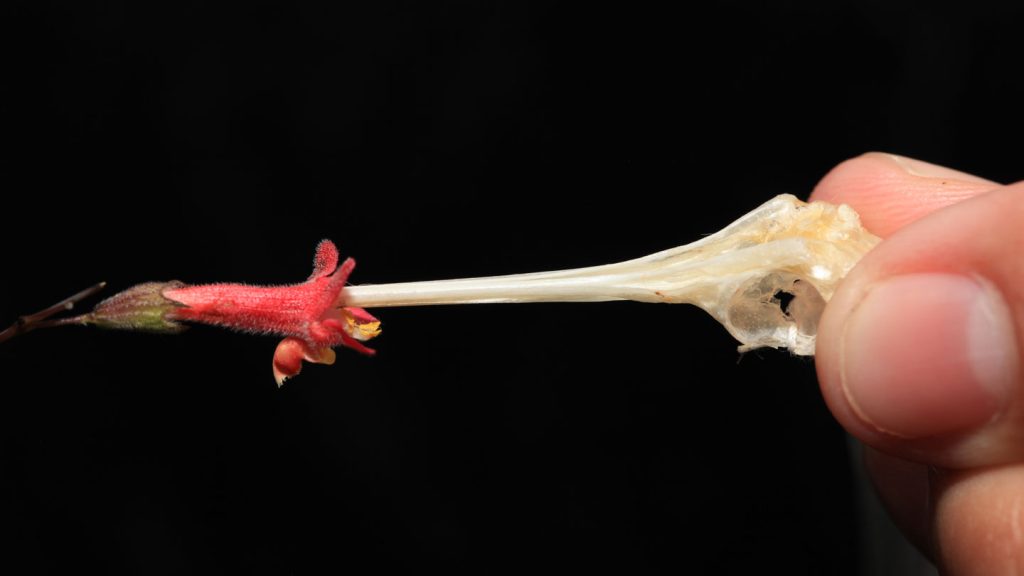The Extreme Climate Survey conducted by Science News is aimed at collecting reader questions related to extreme heat and how it can lead to extreme weather events. Readers are encouraged to submit their queries about this topic in order to gain a better understanding of the effects of climate change on our planet. This initiative is part of a broader effort to educate the public about the importance of addressing climate change and its impact on the environment.
One specific study focused on the H. macrantha flowers, which have both male and female reproductive organs. These flowers go through a male phase and then a female phase to avoid self-pollination. The flowers rely on hummingbirds to transfer pollen between them and use sweet nectar as a reward. Researchers conducted experiments to determine the effectiveness of the pollen transfer mechanism by simulating hummingbird visits with a hummingbird skull and tracking the movement of marked pollen particles. The study found that explosive male flowers were more successful at depositing pollen onto the beak, suggesting a competitive advantage in mating.
The study also found that pollen blasts from exploding flowers functioned like missiles to knock away existing pollen, creating a competitive advantage for male flowers in mating. This behavior is similar to sperm competition strategies observed in the animal kingdom, where males attempt to replace rivals’ sperm with their own. The findings provide experimental evidence for a similar reproductive sabotage strategy in plants, indicating that plants are not just stationary objects but also engage in communication, competition, and active reproductive strategies to increase mating success.
The researchers involved in the study suggest that more research is needed to determine whether the pollen blasts from explosive male flowers result in more offspring. Understanding the evolutionary implications of this behavior could provide insights into plant mating strategies and the role of competition in reproductive success. The study sheds light on the complex interactions between plants and their environment, highlighting the innovative mechanisms that plants use to ensure successful reproduction in a competitive ecosystem.
Overall, the study on H. macrantha flowers reveals the sophisticated nature of plant reproductive strategies and the role of competition in mating success. By investigating the pollen transfer mechanism and the competitive advantage of explosive male flowers, researchers have uncovered new insights into plant mating behaviors. The findings contribute to our understanding of the diverse ways in which plants interact with their environment and other species to ensure reproductive success in changing climates. Future research in this area could further elucidate the evolutionary implications of these strategies and their impact on plant reproductive success.


